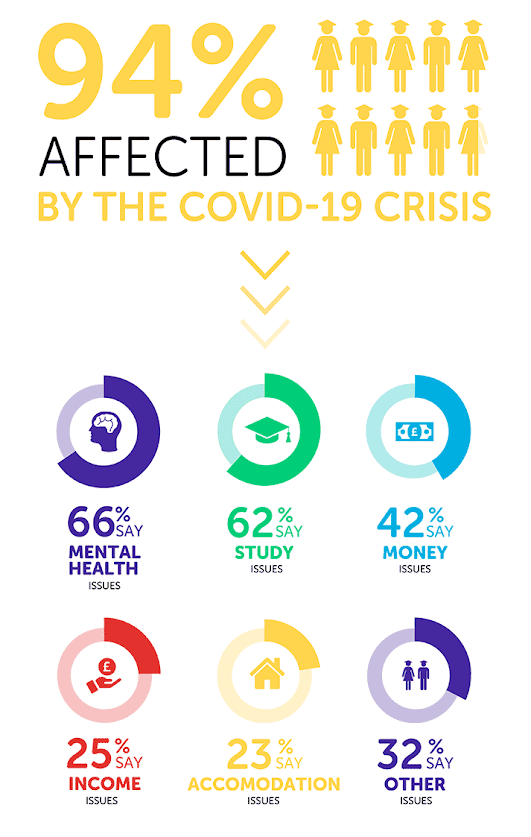England versus Lockdown: Round 2

By Nahidah Khan, BA Development Studies and Politics
The end of October saw Prime Minister (PM) Boris Johnson announce the reimposition of lockdown measures in England, lasting from 5 November to 2 December. This followed confirmation that the infection rate had reached one million Covid-19 cases in the UK.
Amid Covid-19 cases increasing rapidly, the second round of restrictions included a ban on both domestic and foreign travel, except when needed for purposes of healthcare, education, or work. Holiday-goers travelling during this lockdown period could have faced fines ranging from £200 to £6,400.
England’s pubs, restaurants, gyms, and other ‘non-essential’ shops were also met with mandatory closures to reduce social contact, but click-and-collect and delivery services were still permissible. In general, the public health advice was that social meetings should not take place, however exercise in a public space with members of one’s ‘support bubble’ (where a household with one adult joins with another household) was allowed.
On the day of the announcement, the PM’s press release was delayed by three hours. Whitehall insiders suggested it was the result of the ministerial meeting leak that occurred the day before – causing the timeline of the announcement to be pushed up.
The decision for a second lockdown provoked an internal rift within the Conservative party, splitting Tory’s into ‘Lockdown Sceptics’ and ‘Lockdown Proponents’. The former got their moniker from leading lockdown opponent and the Conservative party’s very own Steve Baker MP. Baker runs a WhatsApp broadcast list, aptly named ‘Lockdown Sceptics,’ where 95 Tory MPs receive updates regarding lockdown prospects.
Despite the Sceptics’ rebellion, there was an overwhelming majority of 516 votes across the House of Commons that approved the second lockdown, with only 38 MPs defying their whips and voting against the motion.
Recently, Tory ‘Lockdown Sceptics’ launched the ‘Covid Recovery Group’ to fight against future instances of lockdown, with former Tory chief whip Mark Harper at the helm of the initiative. The group sees England as being capable of ‘living with’ Coronavirus and for Harper, lockdown as a ‘cure’ has ‘the risk of being worse than the disease’ itself.
On the other hand, there are government officials, including Lord Chancellor Robert Buckland, who said in an interview that the four-week imposition is the ‘right thing to do’. Buckland went on to address the idea of possibly even extending restrictions past 2 December, saying that ‘you can’t rule anything out.’
‘Boris Johnson insists ‘“without a shred of doubt” that there will not be an extension to the lockdown.’
However, Boris Johnson insists ‘without a shred of doubt’ that there will not be an extension to the lockdown.
If the PM’s above-mentioned promise is broken, there could be serious repercussions on university students, whose varsity experiences are now being negatively shaped by the pandemic. A survey by Save the Student showed that since the beginning of this academic year, more students are experiencing ‘issues with their mental health and feelings of loneliness’ due to prolonged self isolation.
Their survey found 66% of students report that their mental health had been affected as a result of the crisis. Of the participants, 42% have had to self-isolate which could be contributing towards the rising mental health issues. This is further evidenced in the survey as ‘Loneliness’ is listed as the third most prominent issue that worries students, possibly an unfortunate by-product of lockdown.
Fortunately, the government has ordered 40 million vaccine doses from Pfizer-BioNTech, which has been found to be 95% effective.
The Health Secretary, Matt Hancock, also made an announcement that the UK has secured 5 million doses of Moderna’s Vaccine, which thus far has had an effectivity rate of 94%. On 20 November, Hancock stated in a press release that ‘if the regulator approves a vaccine, we will be ready to start the vaccination process next month.’ In the meantime, Hancock urges members of the population aged 50 and above to get a flu jab. 30 million people are eligible in the largest immunisation scheme to be seen in England.
24 November saw Johnson announce to the Commons that a three-tier system will be put in place at the culmination of lockdown. Johnson’s announcement sparked outrage over the decision to put the majority of England in either of the two tougher tiers, thus plunging England into yet another round of stringent restrictions.
Amid both Tory and national backlash, Johnson defended his decision, saying that while he knows it ‘frustrates people, we’ve got to get the virus down.’
Photo Caption: Infographic breaking down how 94% of students surveyed say they have been affected by COVID-19 (Credit: savethestudent.org).



